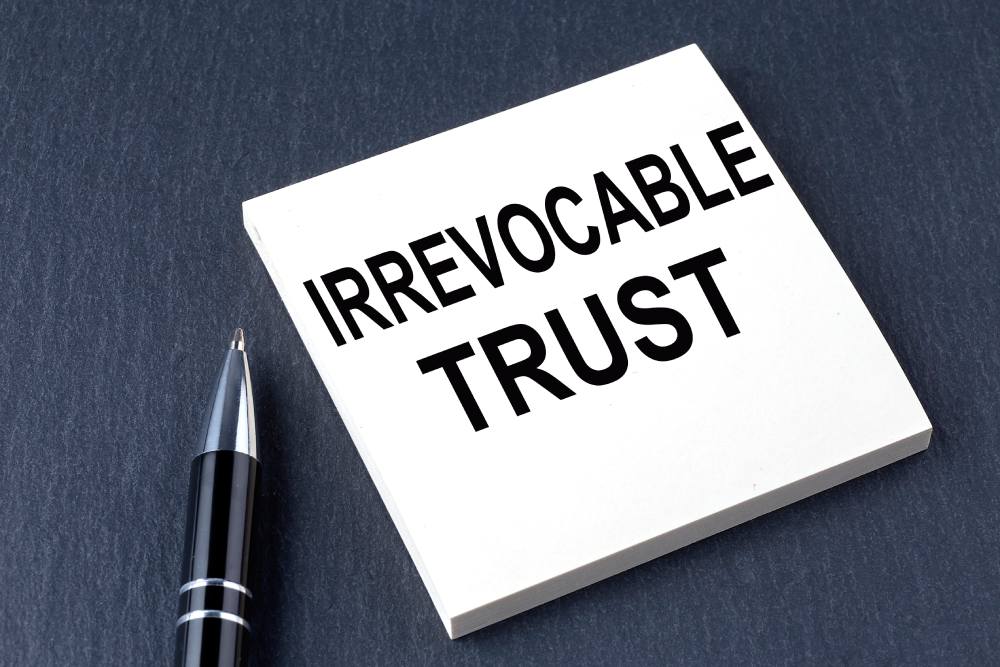Creating an irrevocable trust is a significant step in estate planning, and one common question that arises is the cost of an irrevocable trust in 2025. Many individuals seek clarity on both the financial and procedural aspects.
In this article, we will explore the factors that influence the cost of setting up a trust, what drives higher or lower fees, and which components of the process you should consider closely.
What Affects the Cost of an Irrevocable Trust
The primary cost factor is the complexity of the trust document itself. If the trust needs to address multiple assets, such as real estate, business interests, or foreign accounts, the drafting process will require more hours. Simpler trusts with fewer assets tend to cost less.
Another significant factor is the attorney’s hourly rate. Rates vary depending on the region and the attorney’s experience. In certain areas of the United States, a trust attorney may charge several hundred dollars per hour, while rates in other locations may be more affordable.
Furthermore, asset transfer fees play a role. For example, recording real estate deeds, changing titles, and retitling accounts incur fees or filing costs, which vary by jurisdiction.
Typical Cost Range for 2025
For a moderately complex irrevocable trust in 2025, expect initial legal and drafting costs to fall between $2,000 and $7,000.
If the trust holds more involved or unique assets, the cost can rise well beyond that. In less complex cases, with mostly cash or simple investments, costs may be toward the lower side of that range.
You should also plan for recording and filing costs of a few hundred dollars or more, depending on the jurisdiction. Over time, trustee fees may run from 0.5 % to 1.5 % of trust assets annually, sometimes more when services are robust. That means that a trust with one million dollars might pay $5,000 to $15,000 each year for management and related services.
How Trust Structure Impacts Cost
A simple trust with minimal requirements will demand less time from both the drafting attorney and the trustee. However, if you require special powers, complex distribution rules, or contingent benefits, the drafting time will increase.
In addition, how tax responsibilities are allocated within the trust can affect the cost. If the trust must separately account for income, capital gains, and distributions, the trustee will need to maintain detailed records and manage various filings, which increases both time and cost.
If the trust is established in a jurisdiction that offers favorable privacy or creditor protection features, the legal work and oversight required to guarantee compliance often raise the cost of setting up the trust.
Legal Fees Versus Administrative Fees
The legal fees appear first; they cover the drafting, review, and setup. The administrative fees come after, as the trust operates. Legal work is front-loaded. Once the trust is in motion, most of the ongoing cost is for administration: managing investments, preparing taxes, making distributions, and keeping records.
The administrative fees often have a more long-term impact. If you only look at the initial cost, you might miss how much the ongoing cost will erode value over time. The draft matters, but so does the choice of trustee and how that trustee handles ongoing work.
Hidden Costs and Unexpected Charges
Certain costs might not be reflected in initial quotes. For example, tax filing with complex returns can result in additional fees. If the trust assets include property that needs to be appraised, valuation fees will arise. If the trust makes distributions that involve transactions or the sale of assets, capital gains taxes and transaction fees will be incurred.
In cases of litigation or disputes among beneficiaries, legal defense costs may also arise. Trusts that span multiple states or involve foreign assets might require extra filings or compliance efforts, further increasing the overall cost. Always anticipate that complications can lead to higher expenses.
Ways to Control Cost
One effective way to manage costs is to limit the complexity of the trust. Keep the trust terms straightforward and avoid excessive contingencies or optional provisions.
Selecting a trustee whose fee model aligns with the size of your trust is another way to keep costs down. Some trustees offer fee schedules that are better suited for smaller trusts.
Furthermore, negotiating bundled services for legal, tax, and administrative tasks can reduce the overall cost. Reviewing the trust periodically to remove outdated or unnecessary provisions will also help reduce administrative burdens and long-term expenses.
When Higher Cost Makes Sense
In some cases, higher costs are justifiable if the trust involves complex assets, offers superior protection, or operates in a favorable jurisdiction. If the trust must withstand creditor claims, frequent legal scrutiny, or litigation risks, investing in solid drafting and reliable administration is a wise choice.
In such situations, the added cost should not be seen as an unnecessary expense but rather as a form of risk management. A poorly constructed trust can lead to substantial losses in the future, which makes the initial higher investment a worthwhile choice.
Role of Trustee and Their Fee Model
The trustee must act in a fiduciary capacity and handle many tasks: recordkeeping, investment oversight, tax filing, distributions, and communication with beneficiaries. Because the trustee carries these responsibilities, their fee must reflect that burden.
Some charge a flat fee; others use a percentage of assets; some mix both. The more active the trust, the more time the trustee spends. If a trust is passive, the cost remains leaner. Selecting a trustee who matches your trust’s activity level helps control fees.
2025 Trends That Affect Cost
In 2025, trust attorneys face higher overhead, technology, compliance, and staff costs, all of which push rates upward. Changes in tax law, reporting requirements, and scrutiny of trusts create more work, especially for trusts handling investments or multiple states.
Demand for privacy, asset protection, and estate planning services also tightens the market, pushing rates upward in some regions. With rising complexity in financial landscapes, drafting and administering a robust irrevocable trust often requires more effort than before.
Balancing Value and Expense
The goal is not minimal expense but smart expense. If spending a bit more buys better drafting, stronger protection, or smoother administration, it may be worth it.
A cheap trust with flaws may fail under pressure. The way we plan trusts aims to balance cost and strength. The trust must function reliably under legal or tax pressure. Sometimes paying more early saves greater cost, and worry later.
At Nevada Trust Company, we work with attorneys who specialize in creating trusts that reflect state advantages, personal goals, and long-term cost control. We can assist you and your attorney to design trust agreements that assign tax burden clearly, limit administrative drag, and match trustee functions to cost level. Nevada’s laws give flexibility in asset protection, privacy, and governance that often lead to lower friction and fewer challenges.
If you would like to explore a trust that fits your goals and budget, please contact us today.



